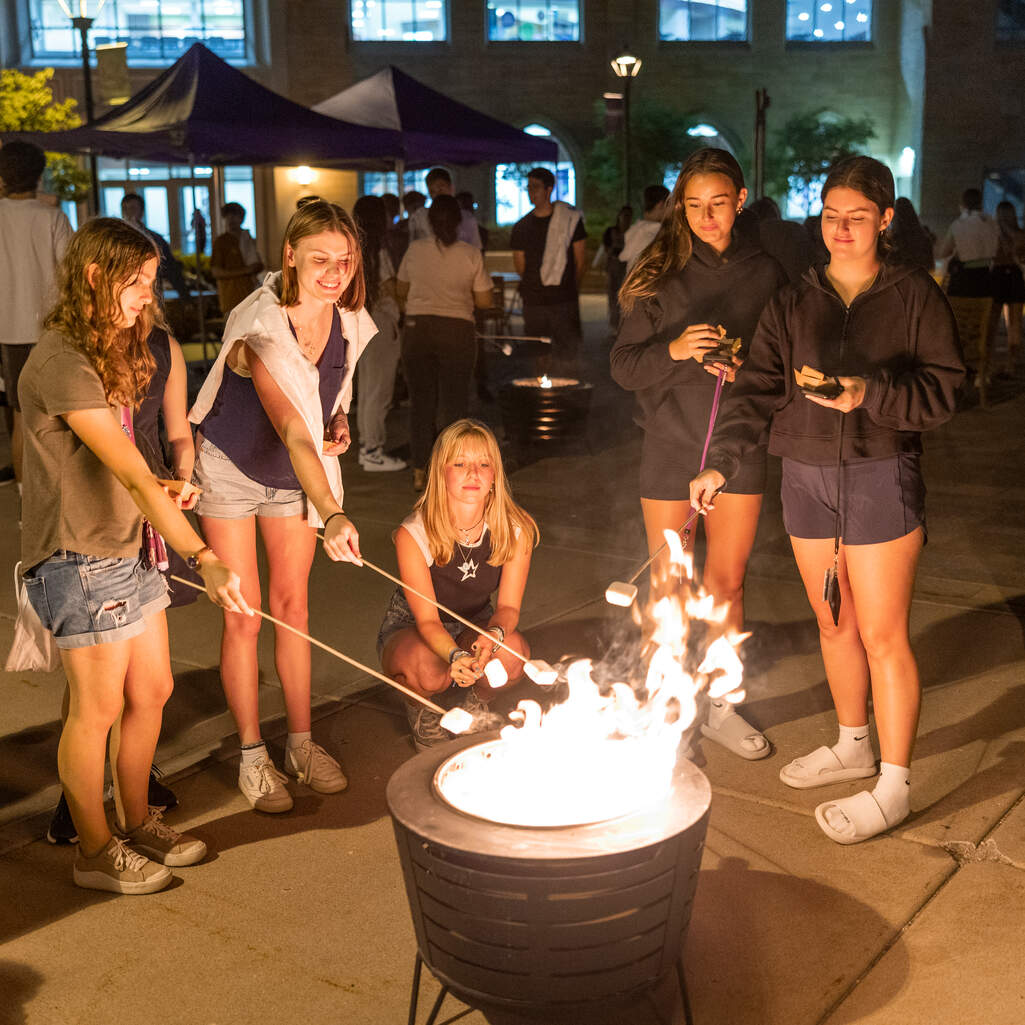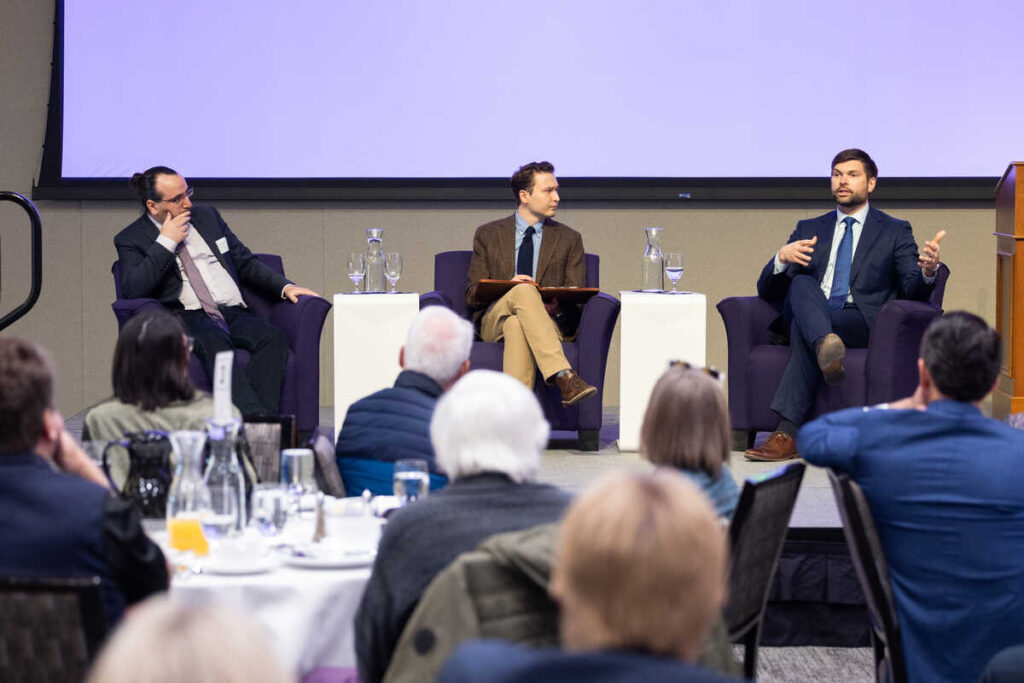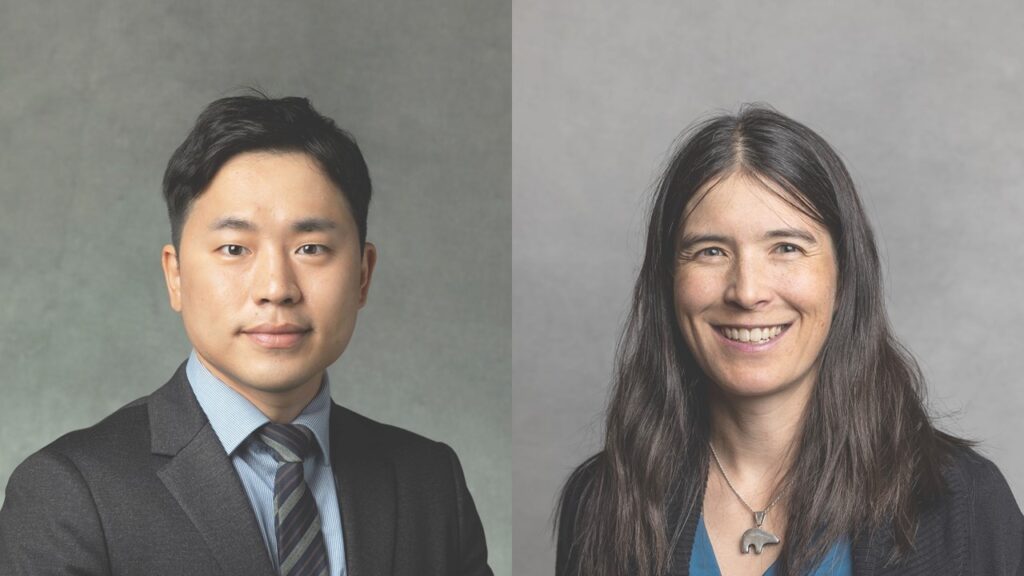Every Tuesday, first-year student Ella Murdy meets with her peers and professor for her psychology class. A unique thing about this class is that the students live with the same people they have the class with. This is through the Living Learning Communities at the University of St. Thomas.
“I chose to live in an LLC because I thought it would be a good community,” said Murdy, who is a part of the Psychology and Neuroscience LLC in Brady Hall. “The people living around me are in the same classes as me and we are able to help each other, bond, and connect because we have the same interests. I enjoy living in an LLC because my friends understand what’s going on in class and it’s easy to get help and bounce ideas around with each other. They understand the struggle and can relate.”
Living Learning Communities launched at St. Thomas in the fall of 2015. Students can choose from 14 Living Learning Communities based on their intended major or academic interests. Once they are placed into their community, they are preregistered for an LLC course or courses, which saves them from a little anxiety on registration day. Students in an LLC are also scheduled for an earlier move-in. Originally, LLCs were brought to the university for first-year students only but are now also an option for second-year students.
Living Learning Communities help students connect through shared academic interests both in and out of the classroom. Students’ cohorts participate in special events and activities throughout the year with their peers and faculty. Students also receive credit in a core course or major course as well complete the learning community requirement of their core curriculum by participating in an LLC. This credit option is a unique feature that is not common at other institutions of higher education.
Studies on Living Learning Communities demonstrate a high impact on the feeling of belonging and connection to community in students. Special connections are made between students and faculty, which improve grades and productivity. It also promotes learning and educated conversations outside of the classroom, say LLC staff, as well as professors who teach courses in the LLC programs.
LLC student staff are just as involved as students are in events, which helps build connections.
“The staff is open about how it was for them in college, and everyone is trying to help each other,” Murdy said. “Over the past month, I’ve noticed that the people in your department are there to help you and actually want to help, including the professors and the EAs.”
A few of the options for Living Learning Communities at the university are the Aquinas Scholars Honors, Scholars for Justice, Nursing, Opus Business, and Psychology and Neuroscience. Most LLCs range between 20 and 50 students. LLCs can be found in each first-year residence hall, and it is a popular topic of discussion for students.
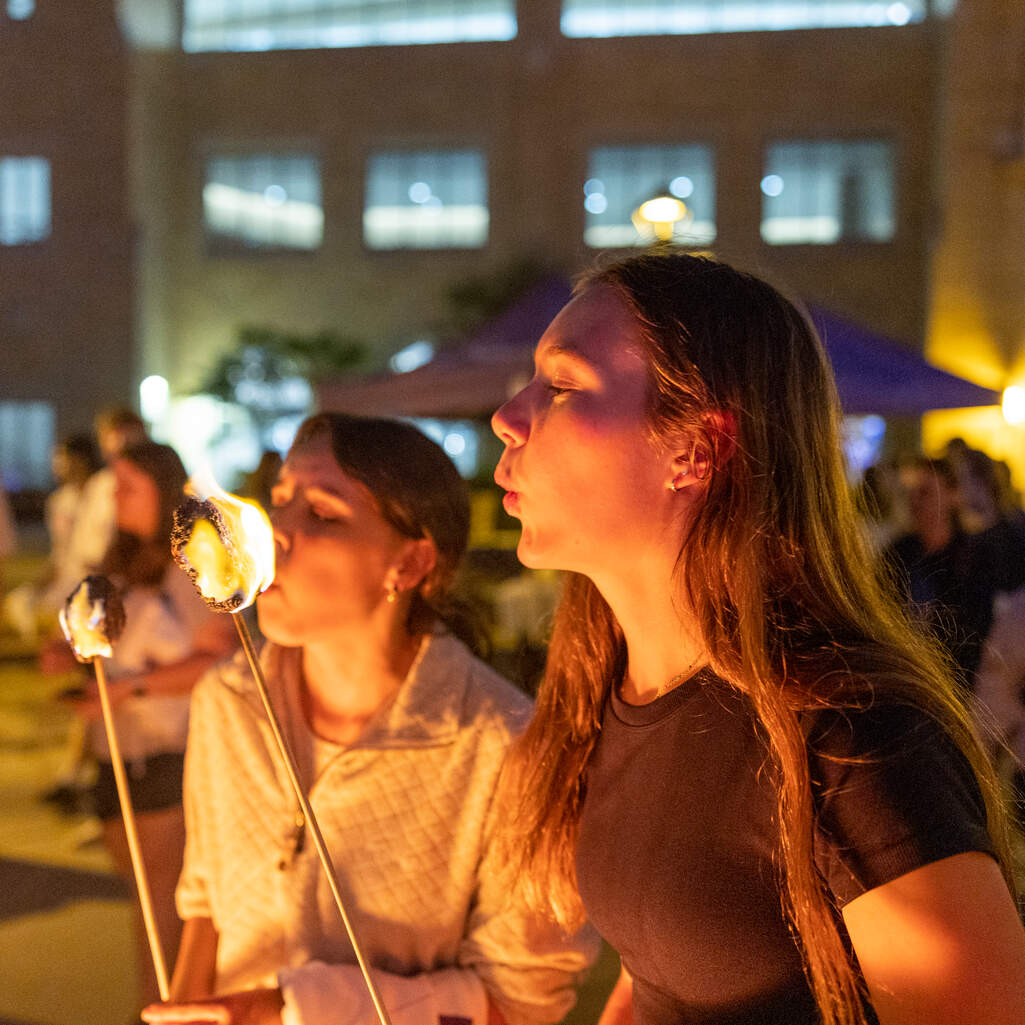
Anna Kikkanen, another first-year student, lives in the Aquinas Scholars Honors LLC located in Tommie North Residence Hall. It is a unique LLC that students must apply to live in.
“I wanted to be living around others who were academically driven people,” Kikkanen said. “I do enjoy living in an LLC because I like that I have an honors class through the LLC that is challenging me and pushing me to be the best student I can be.”
Maria Goodwin, the manager of the Living Learning Community program at the University of St. Thomas, said, “I love working with our LLC students, but I'm also so impressed with our LLC faculty and how much thought they put into their programs.”
Goodwin noted that the faculty develop the LLC events, sometimes taking students off campus. “These students wouldn’t normally get to have these experiences in their first year. I’m super impressed by the work that they do.”
LLCs provide connections that last further into students’ educational career at St. Thomas. The connections made from being in an LLC in one’s first year can lead to research and intern opportunities within their preferred field of study.
“I do feel like I have been able to build a better connection with the staff though because they take time out of their days to try to get to know us and they are able to build a good balance between treating us like students, but also like adults who are responsible for their own success,” Kikkanen said. “I also feel like it has been easier to build a relationship with the staff because they show a sincere desire for you to succeed here and to find passion in what you do.”
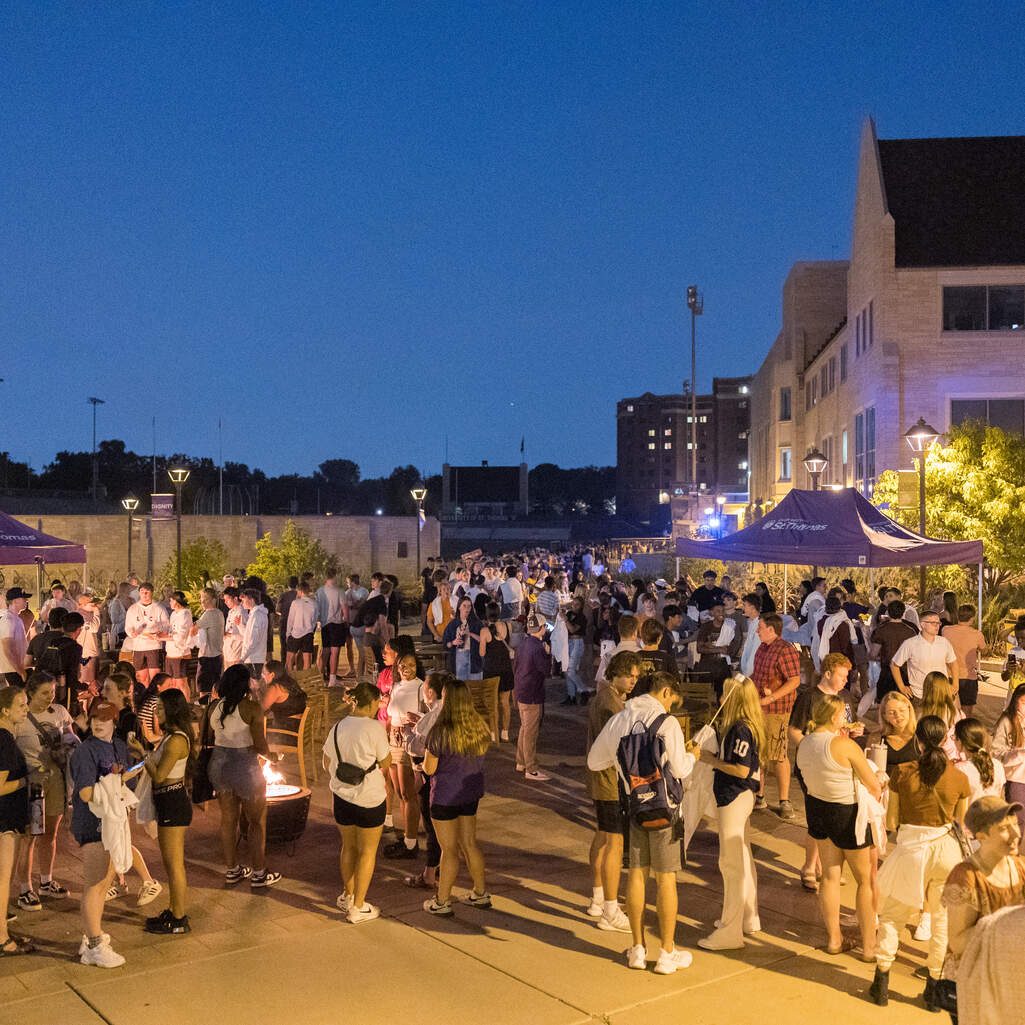
While there are many benefits of being a part of a Living Learning Community, there are still challenges. For example, finding a balance between studies, social life, and the LLC requirements can be difficult. However, the faculty works to bring all the important aspects of the college experience by connecting and enhancing what students are learning in the classroom.
“We really try first and foremost to build relationships and connection,” Dr. Amy Levad, a theology professor, who is also a member of the LLC faculty, said. “Being an LLC faculty member provides the opportunity to see how students continue to develop.”
Levad works with the Emerging Scholars for Justice learning community, which engages students in the common good and social justice issues. She works with other faculty members to create community events, and to look for opportunities on campus that relate to the learning community since students in learning communities are required to attend at least four events or activities during the fall semester.
Levad is also the director of the Common Good Scholars program. The Common Good Scholars is a Living Learning Community for second-year students. It is housed in the Theology Department. Students in this Living Learning Community can complete a minor in theology in the common good.
Students can join a learning community in their second year regardless of whatever learning community they choose in their first year.
Overall, staff and faculty believe that living in an LLC exposes students to great connections and experiences with their peers and staff that will help ease the transition into their new life. It is a great opportunity that builds social, academic, and professional skills that support and engage students.
